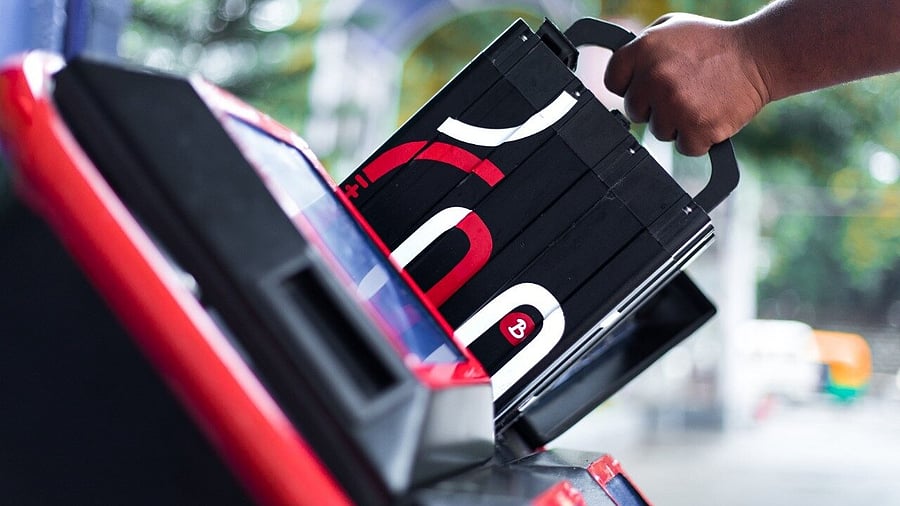
India needs to urgently develop a blueprint to recycle electric vehicle batteries.
The boom in EVs could leave the country with as much as 145,000 tonnes of used lithium-ion batteries in need of recycling by 2030. In other words, it is a problem we can’t ignore, according to industry denizens, experts and researchers.
Recycling EV batteries will also help India, which has minimal reserves of lithium, graphite, cobalt and nickel – all key ingredients to make EV batteries. India currently imports most of its lithium-ion batteries from China. Recycling will bring down the cost of EV batteries and eventually push the adoption of EVs in Asia’s No 3 economy.
“I do believe this is the right time to start building the EV battery recycling ecosystem. It will probably take us a couple of years to start putting different solutions in place,” said Chetan Maini, the man who gave India its first electric car and co-founded swappable battery provider Sun Mobility.
By 2030, India could account for about a third of the global demand for EV batteries and its battery market is estimated to go up to $300 billion, an analysis by NITI Aayog and US-based Rocky Mountain Institute (RMI) showed.
The immediate need to build a robust battery recycling ecosystem also arises from the fact that recycling batteries of EVs is harder than those that power mobile phones and other gadgets. “Electric vehicle battery chemistries are complicated compared to consumer electronic batteries, where the process of recovery is easy and economical. Whereas electric car batteries are difficult to recycle and complicated processes are used, and not economic,” said Sagar Mitra, an IIT Bombay professor who is researching lithium-ion cells that power electric vehicles.
EV battery recycling is not a pipe dream but a reality for Nitin Gupta, the co-founder and chief executive of Attero Recycling, an e-waste management company that counts Maruti Suzuki, Hyundai, Toyota, Ather Energy and MG Motors as its clients.
Attero, which collected 300 tonnes of lithium-ion batteries in just the last month from EVs, plans to invest Rs 300 crore in ramping up its lithium-ion battery recycling capacity to 11,000 metric tonnes per annum by October 2022 from its current capacity of 1,000 metric tonnes per annum.
CIRCULAR ECONOMY
Reintroducing recycled metals and components back into the supply chain could also prove cost-effective and complement the rare earth metals sourced from mining countries.
“Almost 50 per cent of the cost of EV is battery cost, out of which 35 per cent is the cost of metals that make up the battery. Each of these has supply chain issues,” said Gupta.
Besides recycling, there are other applications for used batteries before they reach the end of their life, said Rajeev Singh, Partner and Automotive Leader, Deloitte India.
“I would say it is not just (about) recycling, but there could be a refurbish and reuse as well,” said Singh, who explained that a battery, once rendered ineffective for automotive use, could still be used for other stationary applications like in a mobile-phone tower or a power station.
India’s recent production linked incentive scheme also provides a scope to the original equipment manufacturers to ensure a good network of domestic sourcing of metals is in place by the time local cell manufacturing takes off in the country.
“Manufacturing in India would lower the cost (of EV batteries),” said Maini. “Raw materials prices have suddenly skyrocketed where the recycling part could be significantly cheaper.”
Watch the latest DH Videos here:
